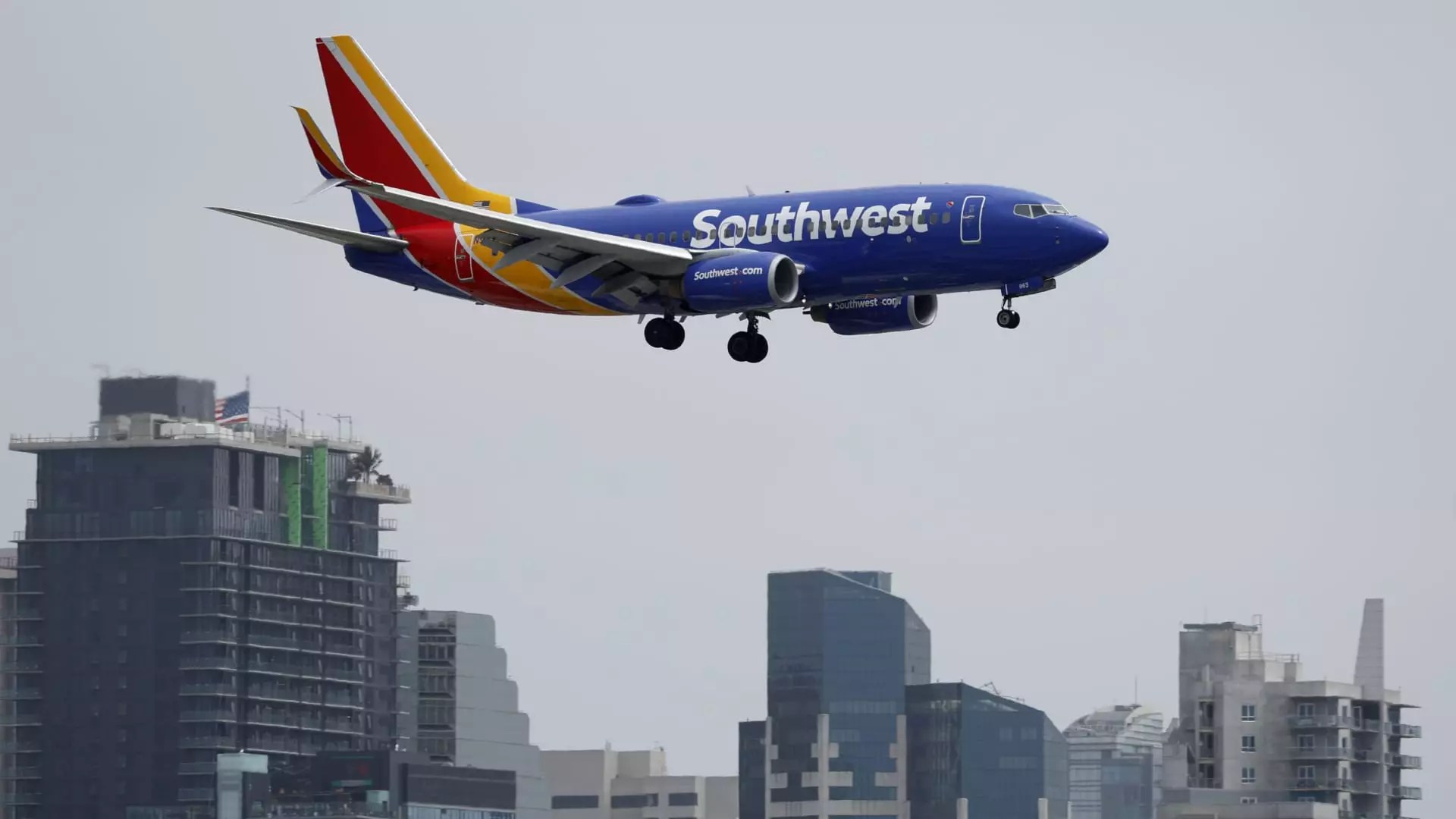In a recent internal communication, Southwest Airlines has alerted its workforce to the challenging decisions that lie ahead as it strives to enhance profitability amidst growing pressure from activist investor Elliott Investment Management. This investment firm has reportedly pushed for a leadership overhaul within the airline, citing concerns about the current management’s efficacy in improving profit margins. The backdrop for this corporate scrutiny is a substantial shift in Southwest’s operational philosophy, marking significant alterations to its long-standing business model that has served the airline for over fifty years.
To counterbalance fiscal pressures, Southwest Airlines has announced a series of strategic moves aimed at bolstering its revenue streams. Among these are the transition from an open seating arrangement to a more structured assigned seating system. Moreover, the introduction of premium seating options with additional legroom at a higher cost reflects a broader industry trend toward differentiated pricing to cater to varying consumer preferences. The carrier has also ventured into the enhancement of its online visibility by allowing listings on major travel platforms such as Google Flights and Kayak. This digital push is complemented by a redefined marketing strategy that targets a younger demographic, as outlined in a recent video address by Chief Operating Officer Andrew Watterson.
In his message to employees, Watterson emphasized that transformative changes are essential to return to a state of profitability. He hinted at upcoming adjustments to their flight network that, while not involving station closures, could significantly alter operations in certain markets. The implications of these changes may affect staff placements and could lead to resource reallocation across different locations. This realignment underscores an imperative to optimize routes per profitability rather than maintaining less effective services, a strategy observed among competitors such as JetBlue, who have similarly adjusted their flight offerings to prioritize higher-revenue opportunities.
Wednesday is poised to be crucial for Southwest, as the airline is expected to release an updated flight schedule, extending ticket sales through early June. Furthermore, an investor day is set for this Thursday, where stakeholders will be presented with comprehensive insights into the airline’s initiatives, including details surrounding the prospective route adjustments. The urgency of these discussions resonates with Elliott’s demands for heightened accountability and strategic progression within the company, especially in light of the impending transition of Gary Kelly, the executive chairman, who has signaled his intention to step down following the upcoming shareholder meeting.
As Southwest Airlines braces for potentially painful yet necessary decisions aimed at rejuvenating its financial health, it finds itself in a delicate balancing act. With pressures from activist investors and an evolving market landscape, the airline’s approach to transforming its business model will be crucial in ensuring long-term viability. President Andrew Watterson’s foresight in addressing these challenges illustrates a commitment to adapt and thrive in a competitive environment. As the airline positions itself for future success, stakeholders will undoubtedly keep a close watch on the outcomes of these strategic initiatives.


Leave a Reply